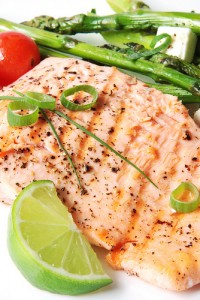
 Dry, flaky skin is an uncomfortable side effect of many cancer treatments. Radiation creates it at the treatment site, while chemotherapy can get you itching everywhere. You apply moisturizer and apply moisturizer, but are there any other natural remedies?
Dry, flaky skin is an uncomfortable side effect of many cancer treatments. Radiation creates it at the treatment site, while chemotherapy can get you itching everywhere. You apply moisturizer and apply moisturizer, but are there any other natural remedies?
Dry skin seems to occur on the surface, but actually the problem goes deeper than that, down to the oil-producing glands in the lower layers. A healthy diet filled with vitamins and minerals that support healthy gland function can help your skin battle the problem. Fortunately, the foods that are good for your skin are good for the rest of your body, too, so while you’re eating for moisturization, you’ll reap the benefit of increased immunity and strength.
Start by drinking more water. Take a water bottle with your everywhere, and drink frequently. Your body is always losing water through perspiration, evaporation, and regular organ functioning, so you need to constantly replace it. Cancer treatments further dehydrate you, so drink up.
Second, increase your body’s hydration by eating more raw fruits and vegetables. Goodies like cantaloupe, grapes, oranges, celery, cucumbers, and tomatoes are all bursting with liquids that will moisturize from the inside out.
Next, choose foods high in vitamins A, B, C, E, and natural antioxidants to support skin renewal and repair. Vitamin A helps maintain and heal epithelial (skin) tissues. Sources include egg yolks, oysters and nonfat milk, plus beta-carotene-rich gems like carrots, sweet potatoes, papaya, broccoli, eggs, and spinach. (The body converts beta carotene to vitamin A.) B vitamins are involved in healthy functioning of oil-producing glands, so pile on the whole grains, cantaloupe, sweet peppers, green peas, fish, and citrus fruits.
Vitamin C supports the formation of collagen, which according to Amy Newburger, MD, an attending physician in the Dermatology Department at St. Luke’s Roosevelt Medical Center, “acts like a sponge for moisture.” Sources include orange juice, broccoli, tomato, mango, peppers, and kiwi fruit.
Vitamin E is great at slowing skin aging, and is found in almonds, leafy vegetables, and olive and sesame oils. Antioxidants are strong warriors, and fight off damaging free radicals caused by sun exposure, pollution, and malnutrition (which can occur during cancer treatments.) Try blueberries and strawberries, squash, kale, spinach, kidney and pinto beans, cranberries, artichoke hearts, apples, and potatoes.
You may also want to beef up your intake of omega-3-rich foods. Experts know that fatty acids are essential to the epithelial structures that retain moisture. Foods high in omega-3 fatty acids include salmon, herring, anchovies, sardines, flaxseed oil, soybeans, canola, and walnuts.
Finally, avoid those foods that rob your body of water. These include alcohol, anything with caffeine, and high-sugar foods and soft drinks, which can all act as diuretics on your system. Stay away from fried foods as well, as they carry free radicals that damage skin structure. And if cancer treatments are affecting your appetite, feel free to use supplements for awhile, returning to good foods when you can.
Remember that cancer and chemotherapy rob your body of critical nutrients that you can replace by eating good foods. Though vitamins and minerals aren’t a quick cure-all for dry skin, getting enough of powerhouse nutrients can arm your body with the tools it needs to lighten the effects of treatment.
Do you have a favorite diet for skin care? Let us know!
Photo courtesy of thefitandhealthychef via Flickr.com.

